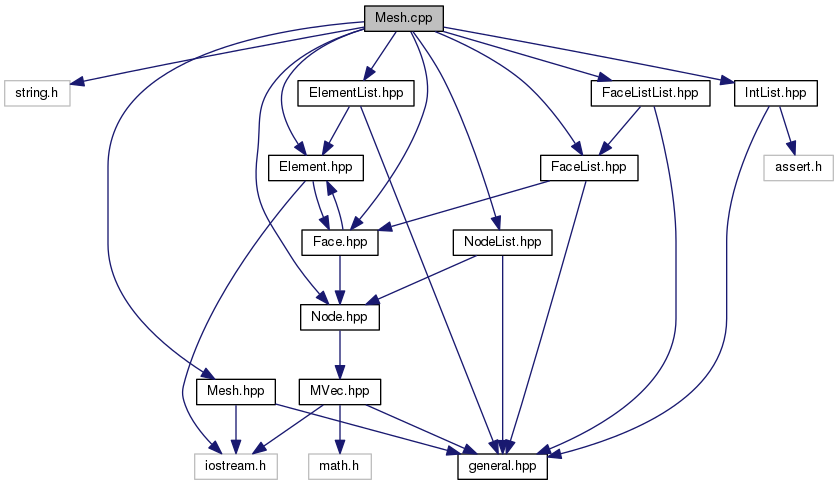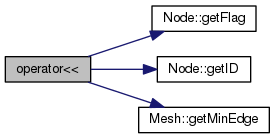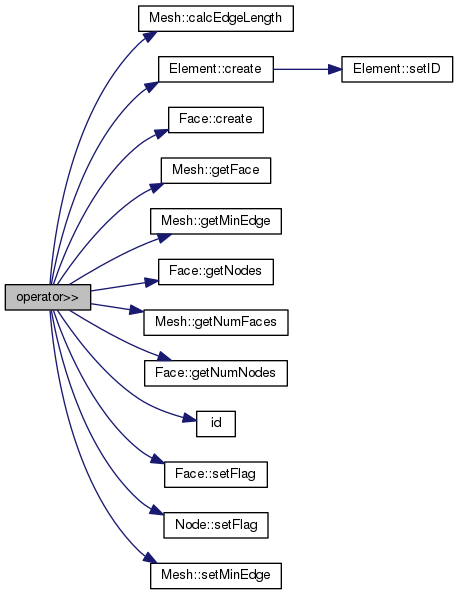#include <string.h>#include "Mesh.hpp"#include "Element.hpp"#include "Face.hpp"#include "Node.hpp"#include "IntList.hpp"#include "NodeList.hpp"#include "ElementList.hpp"#include "FaceList.hpp"#include "FaceListList.hpp"
Go to the source code of this file.
Functions | |
| ostream & | operator<< (ostream &stream, Mesh &mesh) |
| istream & | operator>> (istream &stream, Mesh &mesh) |
| ostream& operator<< | ( | ostream & | stream, |
| Mesh & | mesh | ||
| ) |
These output files are the augmented node/element file (now containing cohesive elements), and the surface node description file. Note that the ostream operators for other classes actually do much of the work (i.e., node << knows how to write a node, element << knows how to write an element, etc.).
Definition at line 359 of file Mesh.cpp.
References Mesh::d_elements, Mesh::d_nodes, Mesh::d_numElements, Mesh::d_numNodes, Node::e_unset_flag, Node::getFlag(), Node::getID(), Mesh::getMinEdge(), i, and j.

| istream& operator>> | ( | istream & | stream, |
| Mesh & | mesh | ||
| ) |
This input file contains the node and element definitions for the mesh. Note that the instream operators for other classes actually do much of the work (i.e., node >> knows how to read a node, element >> knows how to read an element, etc.).
Definition at line 402 of file Mesh.cpp.
References Mesh::calcEdgeLength(), Element::create(), Face::create(), Mesh::d_elementArraySize, Mesh::d_elements, Mesh::d_faceArraySize, Mesh::d_faces, Mesh::d_nodeArraySize, Mesh::d_nodes, Mesh::d_numElements, Mesh::d_numNodes, FALSE, Mesh::getFace(), Mesh::getMinEdge(), Face::getNodes(), Mesh::getNumFaces(), Face::getNumNodes(), i, id(), j, k, Face::setFlag(), Node::setFlag(), Mesh::setMinEdge(), and TRUE.
